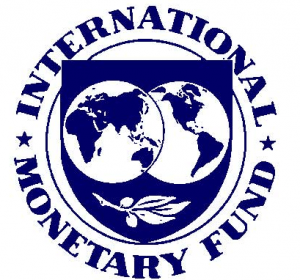IMF bail out painful but necessary – Akoto Osei
 The International Monetary Fund (IMF) bail out, which government has started implementing measures critical to signing a funding arrangement by the close of March, has been described as painful but necessary to restore economic stability.
The International Monetary Fund (IMF) bail out, which government has started implementing measures critical to signing a funding arrangement by the close of March, has been described as painful but necessary to restore economic stability.
According to Dr Anthony Akoto Osei, Member of Parliament for Old Tafo and Minority Spokesman on Finance, negotiations by government with the IMF for a three-year programme to help fix the economy would come at a cost to the average Ghanaian.
He said the IMF interventions would lead to an embargo on recruitment by state institutions or cutting down on their staff or a reduction in government’s wage bill.
He said it was only when Ghana meets the conditionality that the IMF would then convince international donors and development partners that they feel comfortable with the nation’s programme for them to bring in their money.
Dr Akoto Osei who was speaking at a public lecture on the 2015 budget and economic policy statement of the government organized by the Centre for Public Accountability of the University of Professional Studies, Accra (UPSA) said “the 2015 budget and economic policy statement of the government was dead on arrival”.
He observed that government’s budget estimate for the fiscal year was $ 44 billion; with $12 billion gap to be filled in by the government in the course of the year through loans; however, with the IMF programme coming into effect, government had no option but to revise the budget within the first half of the year.
He said the falling price of crude oil on the world market was going to affect the budget both positively and negatively.
He explained that the budget was drawn with an expected income from crude oil of $ 99 a barrel, however prices had fallen to $ 45 a barrel, which was going to affect government’s revenue.
On the positive effects, Dr Akoto Osei said government was going to use lesser amount of dollars to buy the same volume of crude oil from the international market for local consumption; which means a lot of savings for government.
He called on government to fix the current energy crisis, to help save industry, stating that “the effect of the energy crisis will not allow government to achieve the expected revenue from industry”.
He said although the minimum wage had already been fixed, inflation might course labour to come back to government for further negotiations.
Mr James Avedzi, Chairman, Parliament Standing Committee on Finance gave an overview of government’s budget drawing procedures.
He urged government to ensure that the revenue collection agencies were up and doing; and also to extend the tax net to cover artisans.
Dr Albert Kan-Dapaah, Director of the Centre for Public Accountability, said the concept of public accountability demands that politicians and public servants who were entrusted with public resources must be answerable for their fiscal and social responsibilities to the people who provided the resources and who assigned the responsibilities to them.
He said public accountability was a key aspect of good governance in every democratic society.
Dr Kan-Dapaah, who is a former Chairman of Parliament’s Public Account Committee, lauded the Ministry of Health for being the only ministry to be consistent in the presentation of its annual report from the Auditor-General to Parliament.
Source: GNA
